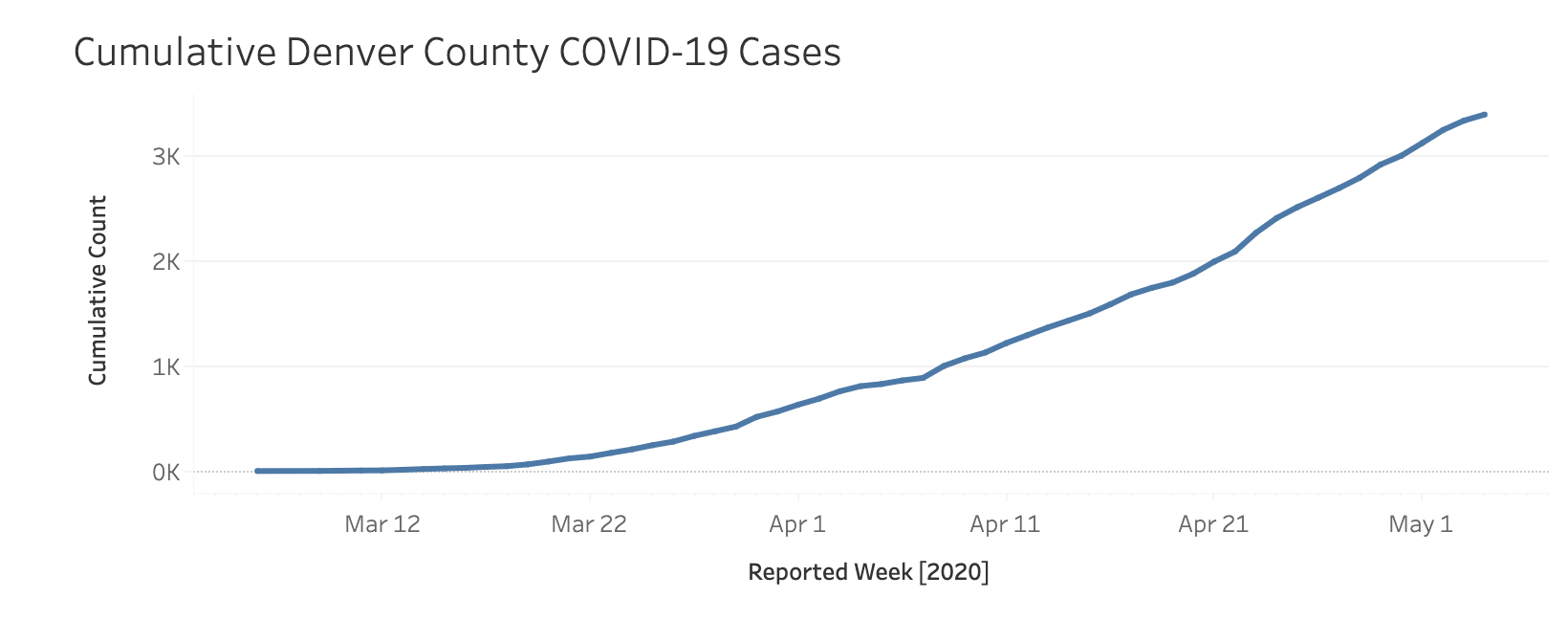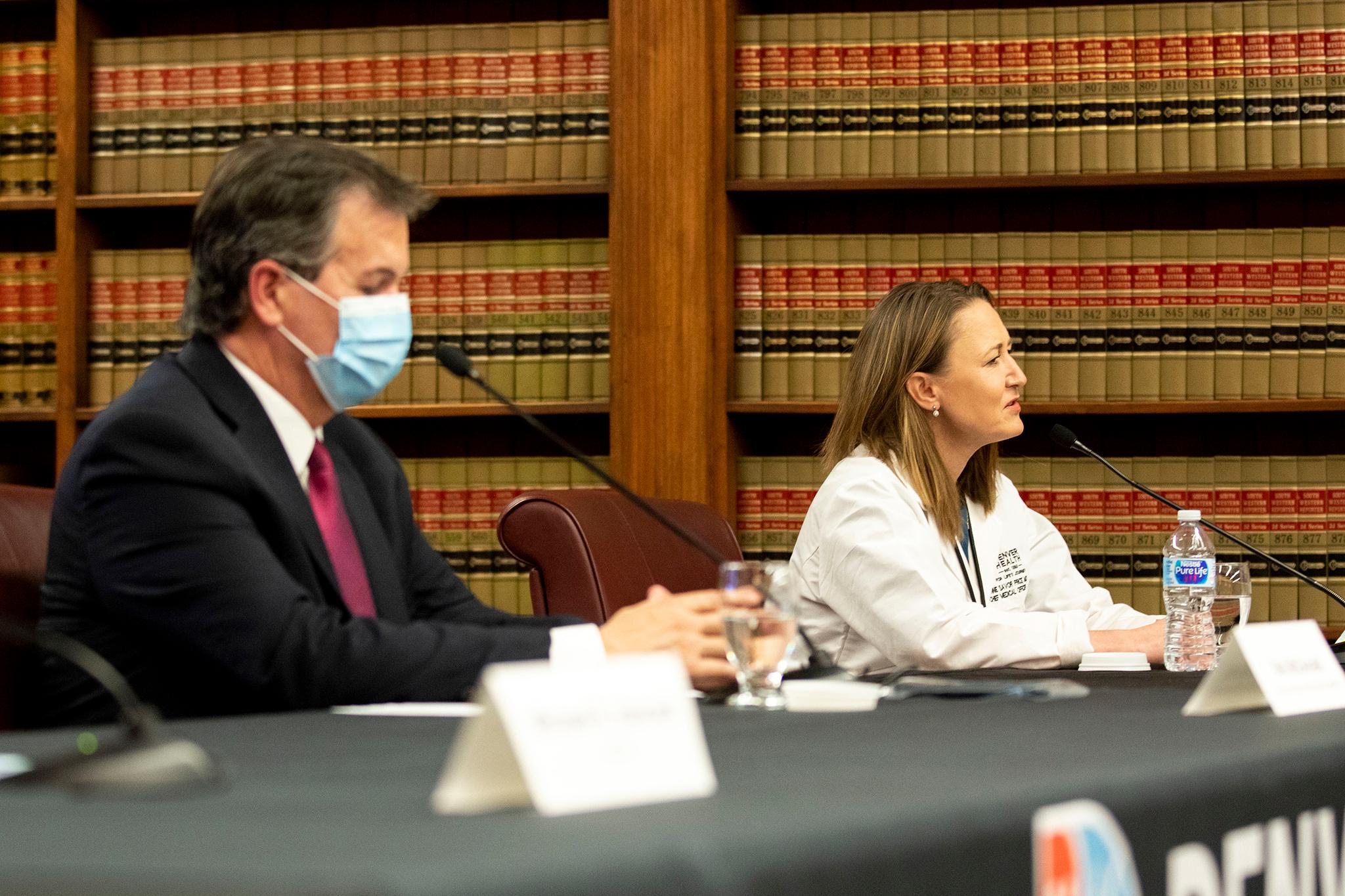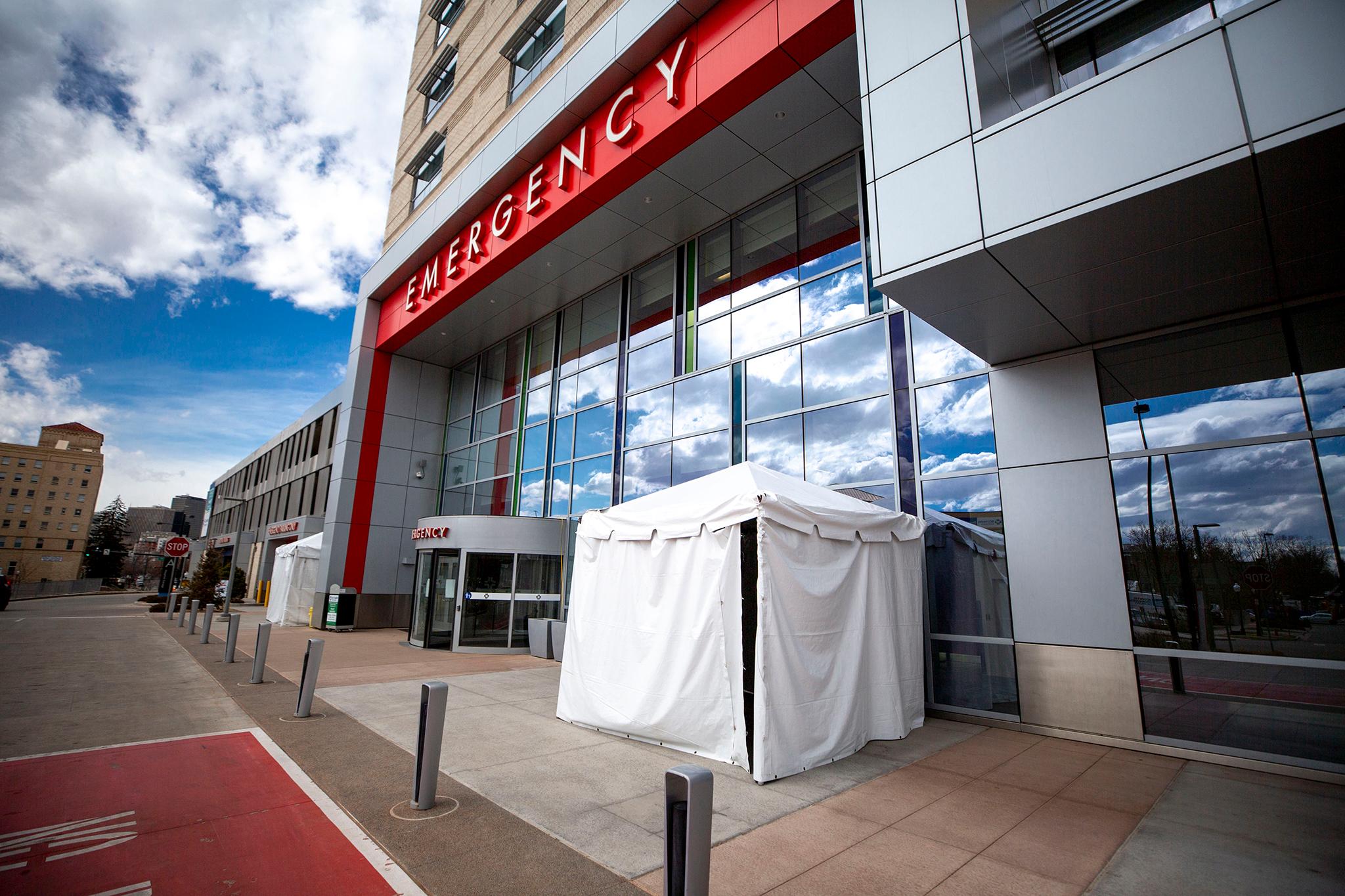Having COVID-19 test kits is one thing. Having the people to take them -- and the medical equipment to get the results -- are different stories.
"We're still in the process of increasing our accessibility for all residents who need testing," Hancock said during a Tuesday press conference alongside his public health director, Bob McDonald, and Denver Health and Hospital Authority chief Connie Price
Despite the potential capacity to test a little under 4,000 people for the virus per day in the city, hospitals and private labs are testing closer to 1,000 because of bureaucratic hurdles, a fractured supply chain and a general lack of access, officials said.


Positive cases continue to rise in the city along with testing, with 3,383 confirmed, according to data from Denver Health. But the number of hospitalizations resemble levels last seen at the outbreak's onset, McDonald said.
Increasing supplies and access will be key as Denver starts to gradually reopen Saturday as the stay-at-home order eases. But right now, hospitals are still dealing with a shortage of things like swabs and reagents.
"So even if you can get the test available, if you don't have the media, if you don't have the equipment to collect the specimen correctly, then you can't run the lab test," Price said.
People who might need testing aren't necessarily getting tested, either. Denver's health department hopes to change course with a marketing campaign and by deploying eight mobile testing labs called "Wellness Winnies" (short for Winnebago) that will bring testing to people's doorsteps -- especially in areas hit hard by the virus, which disproportionately infects people of color.
In Denver, minorities are more likely to have barriers to transportation compared to whites, according to city planning documents.
"Many more tests can still be done, and we'll be marketing heavily the use of our wellness Winnie and other venues where people can go," McDonald said.
The first mobile lab is operational, with seven more on their way. Tests will be free for residents.
On top of the equipment shortage, Denver is in the middle of a complex bureaucratic endeavor aimed at making coronavirus tests available to anyone who wants them without a doctor's referral. McDonald couldn't really say what the holdup is, except that it's "complicated."
"We are aggressively pursuing that," he said, adding that it's somewhat dependent on the state.













